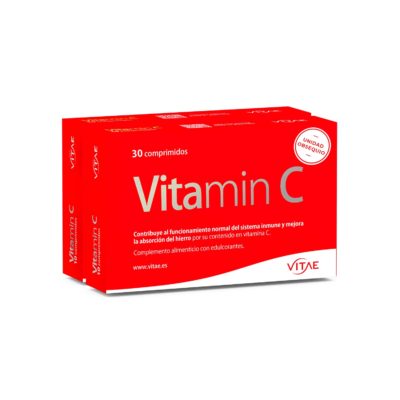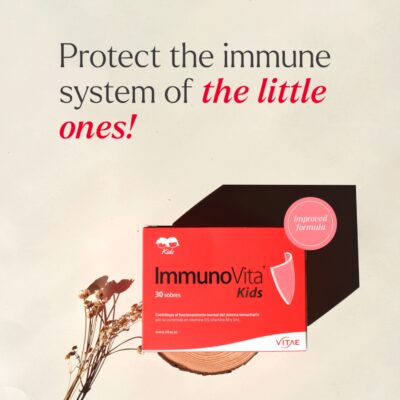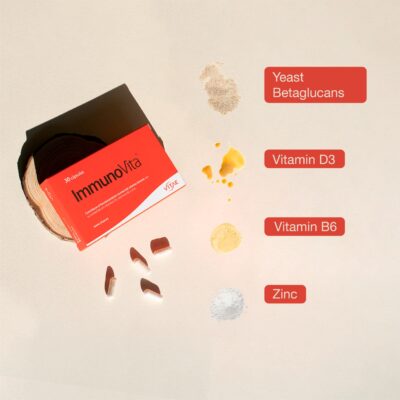We have spoken with María Iglesias, a graduate in dietetics and human nutrition. She also has a postgraduate degree in phytotherapy, nutritional supplements and ergogenic aid. She did a master’s degree in human and community nutrition and specialized in sports nutrition. She also completed a master’s degree in coaching and pnl (neurolinguistic programming). Why should we take what we eat very seriously?
Maria has almost always worked in private practice, and in fact, she currently has her own practice in Barcelona specialized in weight loss, sports nutrition or re-education of dietary behaviours.
“I do not like to tell people what to do and that it is vitally important to be clear about where we want to go.”
It is important to be clear about the objective, and from there, as a professional, I can offer resources so that each person builds the path that suits them best to adapt it to their needs.
“When we are young we eat every 3-4 hours but as the years pass we lose that habit.”
Indeed, and it is one of the most common mistakes as adults. In the consultation I meet many people who struggle with their weight but, do not eat too much. Of course, they snack between meals and take large periods of fasting between meals, which slows down the metabolism, causes us to eat more anxiously etc. Many parents go to pick up their children and bring them the snack, but why don´t they do it for them? It´s important to eat without feeling hungry
As in life, the body needs order?
Yes, a healthy routine and habits are essential when it comes to staying healthy and in good shape. The organization is most important; in fact disorganized people also tend to be at this at mealtime. Similarly, people who are structured and work with very structured schedules tend to eat very well and by the time they leave work or on weekends, they start to get out of control.
When we feed our children, what mistakes do we make?
There is an increase in child obesity, either from eating or lack of physical activity. When I was a little girl we did more activities, you saw more children running in the park skipping rope etc. physical activity is very important for our kids, as it helps to strengthen the immune system and bones, in addition to having other benefits such as increase cardiopulmonary resistance.
Due to lack of time (parents are coming home later) many families tend to eat the same, which is a huge mistake. If we really want to do it right, everyone should eat in a concrete way. To begin with, women are metabolically different from men, we have a higher fat percentage than them and less muscle mass. It is also necessary to take into account which components are in the family: children, adults or the elderly. In adulthood we find differences depending on whether male or female and according to whether pregnant, in menopausal age (where women suffer a deficit of estrogens and from there a redistribution of the corporal fat and a decrease of the Basal metabolism), and diseases, such as diabetes, among others. As you see, it is much more complex than it seems.
The food has to vary throughout our lives.
So, do we have to educate our children to become aware of what they eat since they are small?
Yes, the two main parts in a child’s life are the school and the parents and they have to be in tune. It cannot be that at school the little ones are forced to eat everything because if not they cannot go to play and at home we do the opposite.
It is also important that they understand why we eat one thing and not another. Involving them in the purchase, in preparing of the dinner and others is very productive and educational. They have to understand that the habits they acquire during childhood will have direct repercussions on health and well-being during their adulthood.
Is poor nutrition synonymous with disease?
There are many factors that influence when getting a disease, but of course, one of the most important is the type of food we eat. Poor diet and lack of physical activity causes children to become sick more often, around 6-7 years of age. Correcting the diet will redirect many of these symptoms.
What should food for the smallest in the house be like?
Balanced. It should include a high consumption of fruits and vegetables, which are foods where more vitamins and minerals can be found. Eliminate as much sugar as possible (apart from little health benefits, it has a hyper effect on children), preservatives, chemicals, canned etc. The more natural everything is the better. One of the factors that destroy the immune system the most are all these prefabricated products.
They should consume protein and carbohydrates. This is where you have to properly differentiate the amount of physical activity that the child does. They have to consume carbohydrates, since they have a high caloric expenditure whether or not they have activities, thus maintaining the generation and repair on cellular level, and a high energetic state of being.
Consumption of water and fiber is imperative. Keep in mind that children drink little water because they have difficulty regulating it and often do not feel thirsty. We must drink even if we are not thirsty. I have observed that it is complicated, since the dynamics of the class and school in general does not generate the possibility for drinking much water. Neither the children nor the teachers can get up every two minutes to go to the bathroom. It is an issue that needs to be addressed and kept in mind. Drinking water should not be a problem.
Do they have to eat whole and unrefined foods?
In my opinion everything refined should be outside the kitchens. We are taking away all the grace of food. While it is true that for a child the taste may not be as good, but fibre, vitamins and minerals that this type of food contains is super beneficial for their health.
How can we strengthen our children’s immune system?
If we want to strengthen the immune system, it is important to promote Vitamin C that can be found in kiwis, citrus fruits such as oranges, mandarins, strawberries, melon, peppers and tomatoes. Vitamin A contributes to maintain mucosal barriers and is found in liver, eggs, dairy and some fruits such as cherries or melon. Finally Vitamin E increases the immune response and can be found in cereals, bread, pasta, green leafy vegetables, nuts and olive oil.
Iron, zinc and selenium are also essential minerals to boost the immune system.
To conclude, remember that:
- Order and habits are essential for good nutrition
- It is important to educate children from the time they are young so they learn to eat well and understand why
- We must take into account the needs of each person (adult or child) when choosing meals
- We have to eliminate, as far as possible, refined foods and sugars from our kitchens







